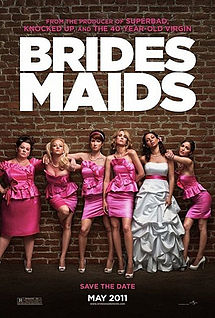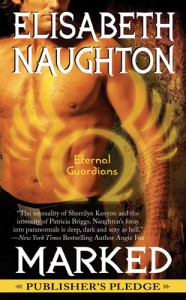First off, I want to give heartfelt thanks to everyone for all the well wishes (and books bought!) for my release day yesterday. I seriously can't even describe how amazing it feels to have so much support. I'm so lucky to have found such a wonderful community of people here online. *giant group hug* I love you guys. :D
DAILY BLOG TOUR ALERT: On Riverina Romantics I'm doing a BDSM 101 post for those of you who may be new to my genre. And over at Stephanie Haefner's blog I'm answering questions about how I built Fiction Groupie and tackling burning issues such as Ryan Reynold or Gosling? ;)
Okay, so, Monday I did a post on Authorial Interaction with Readers - More Controversial Than I Thought. The post seemed to strike a cord with many of you and a lot of you had the same kind of surprised reaction I did. So when Amber offered to give her perspective from the trenches of reader forums, I thought it would be great to hear what she had to say. Hopefully her insight gives us an idea of where some of that sentiment was coming from in the original post I referenced.
Now to Amber...
I am a writer, but first and foremost I'm a reader. I've long loved romance and erotica books (longer, in fact, than is strictly appropriate). Anne Rice was writing menage before menage was hip (hello, Witching Hour). Since then my tastes have meandered through the romance sub-genres, from paranormal to historical to contemporary and erotic and others. What I really love about the genre is the sense of tradition. I love the history of the romance genre and watching the evolution of it. And part of the culture is sharing the experience, whether it's a swap bookshelf at work or an online community.
For a while I was active on the Amazon Romance forums, which can best be described as the Wild West of discussion forums. Spam was a common occurrence: authors posting links to their books in irrelevant threads, posted a one-line, off-topic post, but with a 5 line signature with all their books linked, starting threads only to drop their book link. Worse than that, authors regularly got into "heated" discussions with readers. They called us wrong and stupid. They challenged not only our reviews, but our opinions in general and our reading selections. In an infamous thread about erotic rape-fantasy fiction, one author said that anyone who liked to read books like that should be raped so hard we had to go to the hospital. I'm dead serious.
Now, you would never say awful things. Roni would never be like that. In fact, 98% of authors would never be like that, but those authors have already peed in the pool. The entire author species makes us nervous. That doesn't mean that we don't want authorial interaction. Some of us do. I do. And that is what blogs and newsletters and twitter and even author chats on those forums are for. But they have a built-in velvet rope around them because they are specifically set up for that purpose. When I subscribe to your blog or follow you on twitter, I'm telling you that I'm interested in what you have to say and giving you permission to send me promo.
The question about whether an author can participate in "reader" area is a great one. The answer is yes, you can, but you have to act as a reader. Put away your writing cap and your promo and go talk about the books that you read. This means sharing the books that you love, but also talking about what you didn't like. Authors don't like to do that, they don't want to give negative reviews. I understand that, it's throwing stones and glass houses and all of that. Plus, as an author, you have a certain respect for have freaking hard it is to do it well. But that's you're looking at it through writer-colored glasses, not as a reader. If you go into a reader's area and only give positive reviews, only talk about what you loved, then that looks a lot like promo. And when promo is unsolicited, as it would be in a reader area, then it's called spam.
Our group actually has a few authors in it. They talk about reading. And we like them. So when it comes time to promo them, guess what? We do it for them. One of our founder-author-reader-members, Penny Watson, said, "I honestly have no idea how my participation in this group has affected my sales, nor do I care. I write for fun. I read for fun. And I love this group because it's fun, friendly, and informative." Awesome. And anytime someone wants a Christmas book, we happily point them to hers. I read about a different instance of this happening here.
In the previous post, Roni said, "Yes, we're writers, but first and foremost we're READERS. Just because I have a book out there doesn't mean I'm not also voracious reader who loves to discuss books with others."
If an author was already involved in discussions, then they already know the etiquette. As KarLynP, my fellow moderator and romance forum junkie said, one of the biggest problems we see from authors is "not reading the posting policies nor getting the general feel for the group before you post." I can see how this would happen organically, without sinister spammy intentions, but it doesn't always end well. Starting all posts with "As an author" or "When I started writing X" ...yuck.
A reader can come into the discussion and say, "I loved that alpha hero, he was hot, but the heroine was like nails on a chalkboard to me." That's what reader discussion looks like. If you can say that, or whatever your actual opinion was, then you can absolutely participate. If you can't, because of potential backlash in the writer community, then you're no longer a reader first. You're a writer first.
People write their reviews for other readers. If it was intended as a message for the author, we'd email them. Even the Dear Author blog came out and said it was a shtick, not an actual letter. I know that authors can read my reviews, but it's disconcerting when they reply. If I rave about a book, then hearing a "thank you" is sweet. But if I say something negative in the review, then I don't want a "thank you" even in a private email. Depending on the phrasing, it can come across passive aggressive. But when authors respond to negative reviews, even if they speak carefully, you can always feel the hurt emanating from them. That doesn't shut the discussion on that review down, it dampens the whole reader community.
A book is a product. It's ALSO a labor of love, I know. Holy God, I know. But if you package it and put it up for sale and I paid good money for it, then it became a product along the way. And I should be allowed to say, "I didn't like this book" just like I'm allowed to say "I don't like this new shirt that bled purple all over my clothes." And I don't want Macy's (or whatever) coming up to me and saying, "well, actually, you misunderstood the intention behind the bleeding purple dye, we want all things to turn purple." Or even, "you read the washing instructions wrong, dummy." Sometimes reviewers make mistakes. People who read my review are smart enough to figure that stuff out for themselves.
I've bought books with scathing reviews. Hell, all books of a certain success level have scathing reviews. But when the author steps in, all indignant but trying to hide it behind a veil of courtesy, it's awkward. Don't make it awkward, authors. Take a book that you LOVED, that you consider epic, and check out it's negative reviews. It'll blow your mind, but they'll be there and full of reader rage. It's just part of the book ecosystem. If you're going to put your book out there, then you have to be willing to take your lumps, and quietly.
So what's a well-intentioned author to do?
Make it easy for readers to contact you. Have a blog and a twitter and whatever else you want. But above all, if you want reader interaction, put your gosh-darn email address up on your website! Twitter or contact forms are not a replacement. I know spam is scary (oh, the irony) but Gmail does a really good job nowadays, so just pick the whole email address up! Mine is hello@amberskye.net. There, I said it. And the spam lightning bolt did not strike my inbox full, so don't worry about it!
Don't ever respond to reviews. Roni brought up a great exception, which is if you were in email contact with a blogger and asked them to review your book. Then it makes sense to thank them, but I'd keep it hella short and sweet and do not comment on the content of the review. Otherwise, say nothing. Ever.
The #1 reader interaction is your book. If you want to interact with a reader, write a book. Then write another one, a better one. That is the absolute best way to interact with your fans. That's what we really want, the next installment, a sequel, a new book from you. If we like what you wrote, then we want to buy more, make that possible by writing as many great books as you can.
Thanks, Amber, for stopping by and sharing all of this with us! :)
So what do you guys think of authors participating in reader forums? Do you think you can take your author hat off? Anyone out there successfully being a "reader only" in forums? Any horror stories about authors peeing in the pool?
"Revved up and red-hot sexy, CRASH INTO YOU, delivers a riveting romance!" --Lorelei James, NY Times Bestselling author of the ROUGH RIDERS series
CRASH INTO YOU is now available!
Read an excerpt here.
All content copyright of the author. Please ask permission before re-printing or re-posting. Fair use quotations and links do no require prior consent of the author. ©Roni Loren 2009-2012 |Copyright Statement|








